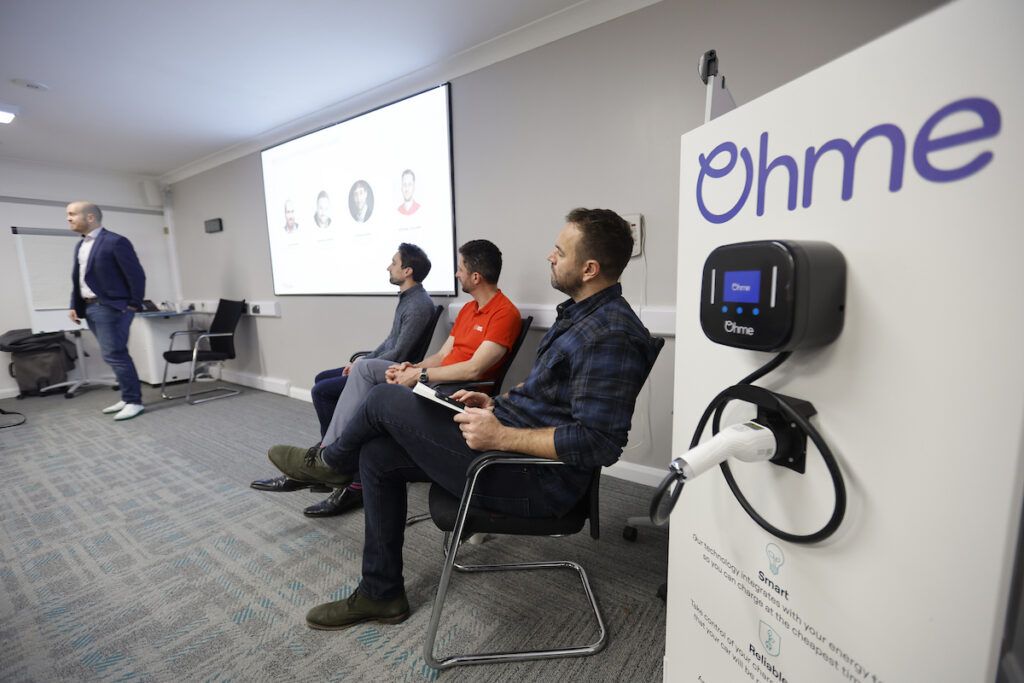Vicky Edmonds, CEO of EVA England, provides a driver’s perspective on the importance of issues relating to the electrification of fleets.
Cost savings, environmental impact, insurance, regulation, how to manage downtime. These are key factors which companies consider as they move to fully electrify their fleets and realise the opportunities that these vehicles can bring to their operations. But what about the drivers behind the wheel?
At a recent industry conference, the battle for hearts and minds of the fleet driver came up. As we persuade the mass market to switch to electric, the benefits these cars and vans can bring to drivers and their households, and the barriers they perceive in making that switch, are often the same whether you are a fleet or individual driver. Understanding and addressing them will be essential to a successful transition.
For those driving their vehicles all day every day, electrification can mean a major shift in how they work.
There are the obvious benefits from driving a cleaner, quieter vehicle which can provide a better driving experience in a more relaxed environment. The vehicles are generally easier to maintain, meaning less down-time. And for those who operate their vehicles from a depot, or from a home with a driveway, there is significant convenience in being able to charge overnight so that your vehicle is ready to go when you need it.
However, if you don’t have a driveway, or you operate on longer routes and need to re-charge during the day, then drivers need to adapt from a world where they would make a brief stop at a petrol station to one where they need to plan a route with reliable and accessible charging, and allow time for that charging.
This means a greater focus on planning, and on route and time management, for those drivers. It means gaining a level of confidence in what is a new technology, including developing a better understanding of how to use the vehicle efficiently: how to monitor battery use and adapt to it, and how driving style, loading and the route itself can affect the battery range. It also means having reliable access to charging infrastructure.
There is important work going on across the sector to strive to make sure that drivers can access chargepoints when they need them, and at affordable prices – including government funds for rolling out infrastructure, work to deliver regulations that ensure a good charging experience for all drivers and work to raise awareness of the need for simplified planning processes to support roll out of that infrastructure.
But to make sure the transition to electric is as smooth as possible, those driving their cars or vans for work will also need the right support and training in how to use the them, and their supporting charging infrastructure, to best meet their operational needs.
Ultimately, the success of electrification depends on gaining the confidence of the people using the vehicles. If fleet drivers understand and value the benefits these vehicles bring, and can talk favourably about their experiences, they can become incredibly strong advocates for the transition – demonstrating and persuading many across the driving community that electric cars and vans can and will work for them.
EVA England is an event supporter of the inaugural Transport + Energy Fleet Electrification Forum, which is due to take place on 9 July at Warwick Conferences. You can find out more about the event here.
Dr Vicky Edmonds, CEO of EVA England, is a leading expert in the EV and net-zero landscape, with nearly two decades of experience shaping UK government transport decarbonisation policy.
As former Head of the Office for Low Emission Vehicles (now OZEV), she spearheaded the UK’s 2030 phase-out of new petrol and diesel cars and led transformative projects like the £950m Rapid Charging Fund.
An experienced policy maker, she’s also been a passionate EV driver for six years, giving her first-hand insight into the evolving EV market. Her expertise also extends to legislation, including the 2018 Automated Electric Vehicles Act, and to wider energy system decarbonisation strategies through her work with the Energy Systems Catapult.
As CEO of EVA England, she champions the interests of EV drivers and advocates for a cleaner and fairer transport future.












